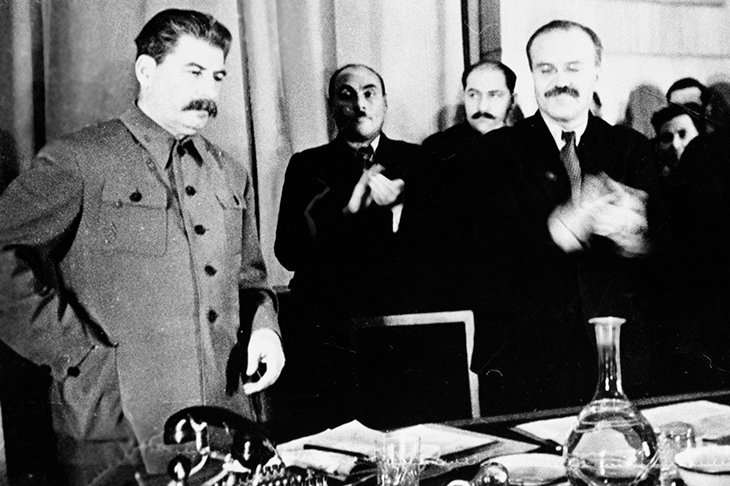In Russian, the proverb ‘Ignorance is bliss’ translates as ‘The less you know, the better you sleep’. For those who experienced the worst of the Soviet Union’s terrors, this is not just a throwaway adage but a strategy for self-preservation. As Alex Halberstadt’s father — the son of one of Stalin’s former bodyguards — attests: ‘There is no more to be gained from sifting through the past than through cigarette ashes.’
Halberstadt, a Soviet-born American writer, doesn’t agree. Aged nine, soon after leaving Moscow with his family and defecting to the West, he began having a recurring nightmare in which he was chased by a ferocious bulldog, a dream that lingered into adulthood. Contrary to the proverb, ignorance, it seems, is a shoddy defence against night terrors. Throughout his life an inner dread has followed him like a ‘medieval possession’, something he believes is an inherited affliction, with roots in his family’s unacknowledged past.
In a bid to inspect, diagnose and perhaps stymie this problem, Halberstadt returns east, to Ukraine, to meet with his grandfather, Vassily, a former bodyguard for Stalin and other senior figures in the KGB. Their uneasy encounters form the first part of Young Heroes of the Soviet Union, an illuminating, dramatic and wistful family memoir.
That Vassily — now senile and well into his nineties — is alive at all is quite remarkable. To be close to Stalin was to risk a death sentence; many of Vassily’s colleagues simply vanished from view. He is generally evasive, but at times offers enthralling insights into Stalin’s inner circle, describing how he once forcibly restrained Marshal Zhukov, the Soviet Union’s top military commander, from entering a meeting of the Presidium of the Supreme Soviet.
Halberstadt grew up thinking his grandfather was the ‘moral equal of a Gestapo officer’; but this soon softens into thinking of his culpability as ‘an immense, unknowable continent filled with indecipherable ambiguities’. ‘I was frightened every single day,’ Vassily whispers to his grandson, in a brief flicker of vulnerability, further blurring the borders of responsibility.
The lives of Halberstadt’s maternal grandparents also played out on a historic stage. As part of the 5 per cent of Lithuanian Jews who survived the war, Semyon and Raisa are ‘statistical marvels’. Halberstadt traces their story from Vilnius to New York, observing how their lives moved in parallel with fluctuating levels of anti-Semitism. Semyon was sacked in 1952 from his teaching position at Vilnius University for being Jewish. Stalin’s anti-Semitic rhetoric would soon culminate in the infamous Doctors’ Plot, a campaign that saw hundreds of Jewish doctors arrested and tortured.
As Halberstadt recalls swapping his childhood home in Moscow for a one-bed apartment in New York, the book’s thread loosens amid biographical detail. But he has a knack for memorable images: Leonid Brezhnev looked ‘fully rectangular from every angle’, while the smell of a sleeper carriage was a mixture of ‘cured sausage and sweat’. It’s as if his feelings about Russia were frozen in time when he emigrated, leaving shards of perception that are peculiarly incisive.
Halberstadt saves his most majestic writing for his father, and their strained relationship. Of his childhood, he writes: ‘I felt as if I were treading water on the periphery of his awareness, unable to swim closer.’ His memoir is not so much a journey backwards as a wading towards something that had previously felt out of reach.
While he theorises that ‘trauma is perpetuated by repression,’ he also sees that not everything need be explained. ‘We lived in terrible times,’ he is told by Vassily’s wife, Sonya. ‘All that is left now is to be kind to each other.’ And this personal history is, indeed, a kind book.






Comments